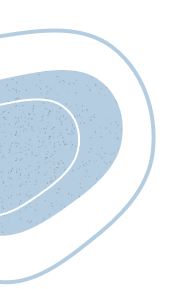Buying a Home
First-Time Homebuyers
Closing Process
5 costs to know about before buying a home: An expense checklist
This guide breaks down all the steps and surprise costs of buying a home in Canada so you won't get blindsided by hidden fees when closing on your dream home.
Julian TerenzioSr. Product Manager @ Pine
6 min read

For first-time and seasoned home buyers, it can be overwhelming to keep track of all the steps and hidden costs involved in closing on the perfect place. Here's what we'll talk about:
The down payment and deposit
Expenses prior to closing
Expenses at closing
Expenses following closing, and
Ongoing expenses
How much house can you afford?
Look at your own income level, and existing debts, and check your credit score so you have a basic understanding of your own financial health. Use our affordability calculator to determine how much you can afford which takes into account your level of financial wiggle-room.
Remember your mortgage qualification and pre-approval
There can be a lot of hurdles to jump through in order to get a mortgage, including:
Choosing a type of mortgage (variable vs. fixed)
Shopping around for rates at a few different types of mortgage lenders
Organizing income documentation, and
Getting a pre-approval letter
Check out our full list of how to simplify the mortgage qualification process.
1. Don’t forget the down payment and deposit
What should you put down?
Once you look at your own accounts and have spoken to a lender, you should have a good idea of how much you can use as a down payment. The minimum deposit in Canada is 5% of the purchase price, but 20% is usually a safer bet (we’ll get into this later).
Don’t count on using all of your cash for a down payment—there may be more hidden expenses than you think.
Have funds at-the-ready
Make sure your money is liquid, meaning selling stocks, bonds, or other investments for cash. You’ll need to be able to get a certified cheque or bank draft quickly for a deposit with your offer.
Offer deposits can be around 5% of the purchase price and are submitted with your offer. Think of it as an advance on your down payment so the sellers will take a closer, and more serious, look at your offer. A head’s up: you’ll need an additional draft, or wire transfer, for your deposit at closing.
2. Expect these expenses prior to closing
When the time comes for closing, the following additional expenses enter into the homebuying equation. Make sure you’re aware of all the fees prior to, at, and following the close of your home purchase.
Home inspection
Home inspections aren't required, but they're worth it. They will cost $300-$1,000 CAD, but can save you thousands down the road by catching problems before you buy. It's better to spend a little now than face expensive surprises later.
Land survey
If you’re buying a detached or semi-detached home, your lender may also want to do a land survey to show a property’s boundaries. Costs can vary depending on the level of research.
Home appraisal
Most lenders require a home appraisal so they know your home is worth what you paid. The amount of your mortgage may be contingent on the appraised value, rather than the offer price. You should expect to chip in between $275 and $500.
Selling? More expenses may be involved
If you’re simultaneously buying and selling, you may have a few more expenses, like staging your home so you get the highest price. Some real estate agents will include it in their fees, but it can also be a separate expense.
3. Expect these expenses at closing
Legal fees
You’ll need a lawyer to walk you through closing documentation and your mortgage. Many law firms will charge a flat fee for straightforward transactions, anywhere between approximately $900-$2,000.
Real estate agent fees
Agent fees are paid by the seller. The standard commission is 5% of the purchase price and is split between the buyer’s and seller’s agents. Since this is one of your biggest expenses, you should check out a full breakdown of these fees.
Land transfer and other taxes
Depending on where you live, moving-related property taxes can make a big dent in your budget. Land transfer taxes vary by province and municipality, but they are significant in both Toronto and Vancouver. Land transfer is paid by the purchaser of a property. Check out these sites for a full breakdown of land transfer taxes in Toronto and Vancouver.
You might also have to pay GST, PST, or HST on your home, but this generally only applies if your home is a new-build or has been substantially renovated.
Title insurance
Title insurance protects you from title defects, omissions and errors, and anyone trying to make a claim on your property. Costs do vary from province to province, but they could be anywhere from $150-$350.
4. Expenses following closing
Mortgage insurance
There are two main buckets of mortgage insurance:
Default Insurance: If your down payment is less than 20%, you’re required to pay default insurance to protect the lender if you can’t make payments. Use this calculator to see how much you are likely to pay.
Critical illness / Disability / Life insurance: this isn’t required, but it can give you peace of mind. If anything serious happens, your family can continue living in your home without worrying about mortgage payments.
Moving
Don’t forget about the costs of actually moving—which can quickly add up! Save yourself time and effort by shelling out for movers, or save the cash and round up some very, very good friends.
Furniture
Don’t underestimate how expensive furniture can be! Make sure to save some money to furnish and stock your home. Think bedding, towels, kitchen essentials, cleaning supplies, and anything else you need to create a comfortable home for you, your family, your pets, and future guests!
5. Keep track of these ongoing expenses
Owning a home comes with more expenses than renting, so be sure to keep these future home-owner expenses in mind:
Homeowners’ Association (HOA) fees or condo fees
Property taxes
Utilities
Repairs and upkeep, and
Home insurance
Find the right people.
Having knowledgeable people guiding you through the process can demystify the more confusing elements of the home-buying transaction.
Finding the right agent is a huge part of feeling comfortable while buying or selling a home. Still have questions? Contact our team of agents, home stagers, or analysts to help you on your way.
*DISCLAIMER: This article is provided for informational purposes only. It is not an exhaustive review of this topic. The content is not financial or investment advice. No professional relationship of any kind is formed between you and Properly, Properly Brokerage, or Properly Homes. While we have obtained or compiled this information from sources we believe to be reliable, we cannot and do not guarantee its accuracy. We recommend that you consult a trusted professional before taking any action related to this information. Properly is a tech-enabled real estate brokerage that is transforming the home buying and selling experience with AI-powered home valuations and a modern streamlined service. We recommend that you compare and contrast your options, read the fine print, and conduct detailed research into any real estate, loan, and/or investment provider before using their services.*










